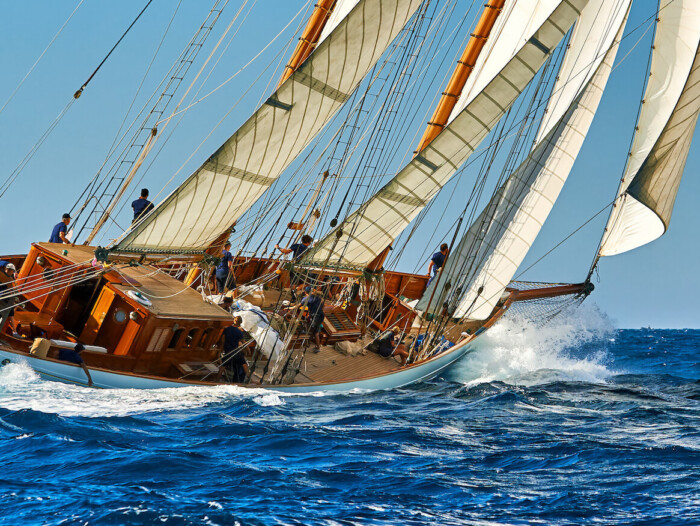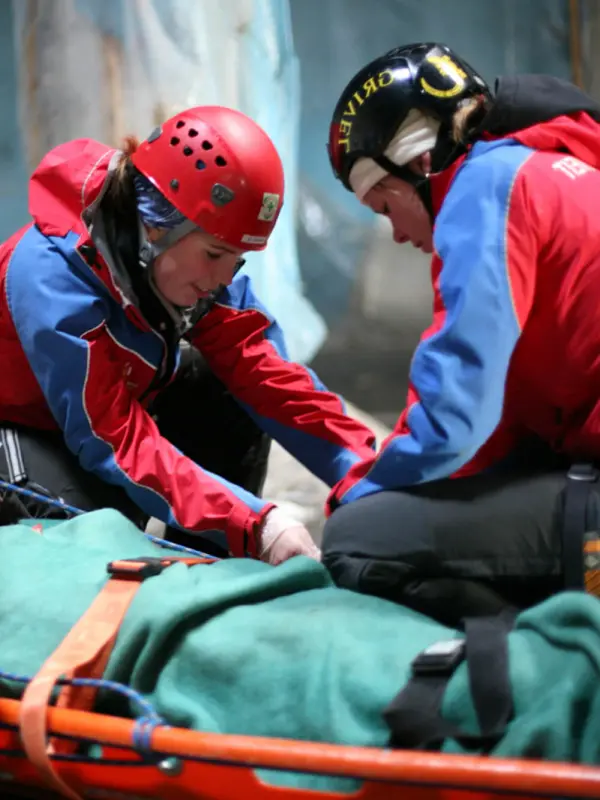Offshore Emergency Medicine
- Minimum Duration
- 36 Hours
- Minimum Age
- 18*
- Minimum Cost
- $995+
- Skill Level
- Any

Description
This maritime first aid course prepares voyaging sailors and professional mariners to prevent and treat injuries and illnesses in the largest and most remote wilderness on earth. Instruction focuses on assessments and treatment of medical problems through case studies, scenarios, skills labs, and patient assessment.
Class Format
This course requires a minimum of 12 hours of pre-course reading, assignments, and testing followed by three days of on-site training. The course includes skills labs in wound care, reduction and splinting, extrication, and injections. Practical sessions may include training on a vessel depending on course location.
Requirements
CPR training is a prerequisite to certification. Completion of a first aid course is highly recommended.
Prior to enrolling, please review our Functional Position Description. The criteria in this policy allow students to self-assess their ability to meet the demands of a WMA International course as well as the demands of a certified wilderness medical provider in the field.
*The minimum age to attend this course is 18, although 16-17 year olds may attend alongside a parent or legal guardian. Contact your host directly for more information.
Evaluation
This course is pass/fail. 100% attendance is mandatory. Evaluation is based on practical patient simulations, hands-on activities, and a written test. WMA International is committed to making reasonable accommodation for any student with special needs.
Course Topics
- The general principles of maritime medicine with an emphasis on prevention and identification of medical emergencies, appropriate technology, and risk management.
- Patient assessment and care for environmental exposures, traumatic injuries, and medical conditions.
- Developing a concise patient problem list emphasizing patient reporting via written records and various technology such as radios, phones, and satellite tools.
- Lifting, moving, and extricating ill and injured patients with consideration for small spaces.
- Stabilizing musculoskeletal problems including unstable and stable injuries, overuse syndromes, and dislocations.
- Skills stations focus on considerations and techniques for managing bleeding, cleaning wounds, and administering injections.
- Developing a list of medical kit components, including medications for maritime medical care, under consultation of course instructors.
- WMA International wilderness protocols including treatment of anaphylaxis, wound management, CPR in a remote setting, spine injury assessment, reduction of simple dislocations, and treatment for severe asthma.
Course Topics
- The general principles of maritime medicine with an emphasis on prevention and identification of medical emergencies, appropriate technology, and risk management.
- Patient assessment and care for environmental exposures, traumatic injuries, and medical conditions.
- Developing a concise patient problem list emphasizing patient reporting via written records and various technology such as radios, phones, and satellite tools.
- Lifting, moving, and extricating ill and injured patients with consideration for small spaces.
- Stabilizing musculoskeletal problems including unstable and stable injuries, overuse syndromes, and dislocations.
- Skills stations focus on considerations and techniques for managing bleeding, cleaning wounds, and administering injections.
- Developing a list of medical kit components, including medications for maritime medical care, under consultation of course instructors.
- WMA International wilderness protocols including treatment of anaphylaxis, wound management, CPR in a remote setting, spine injury assessment, reduction of simple dislocations, and treatment for severe asthma.
